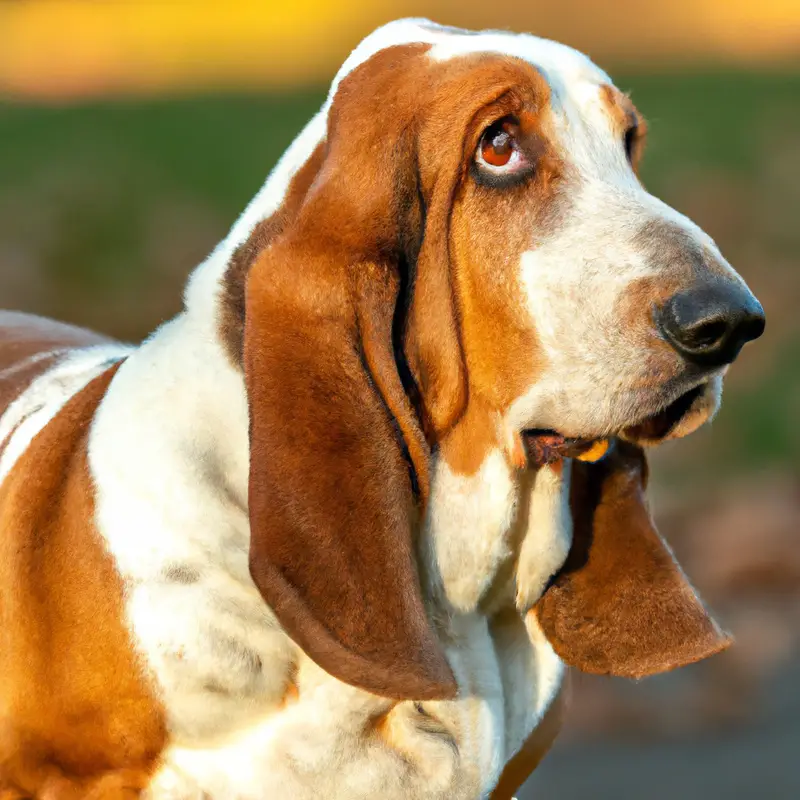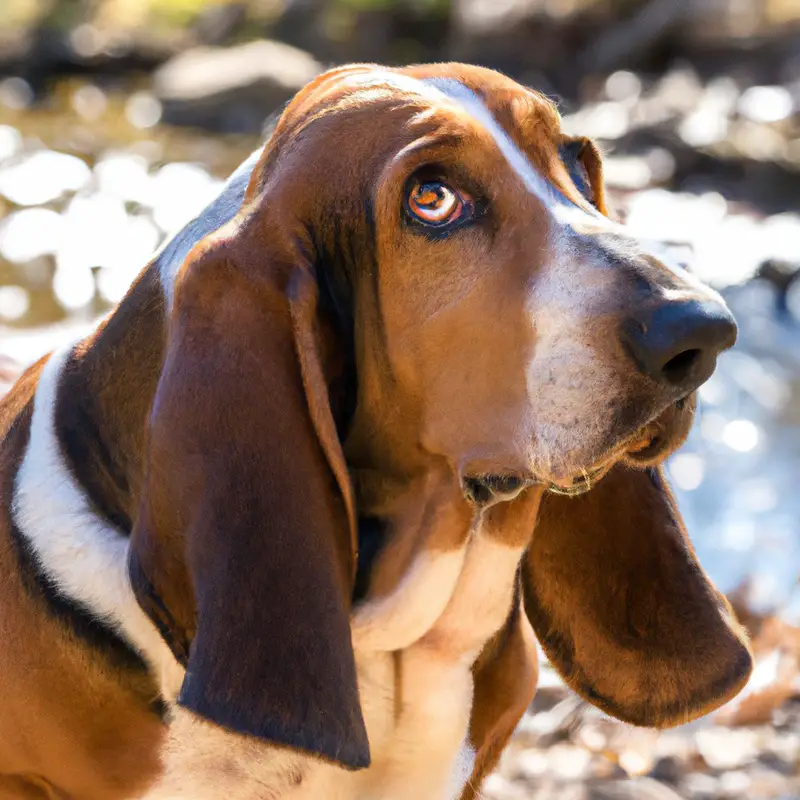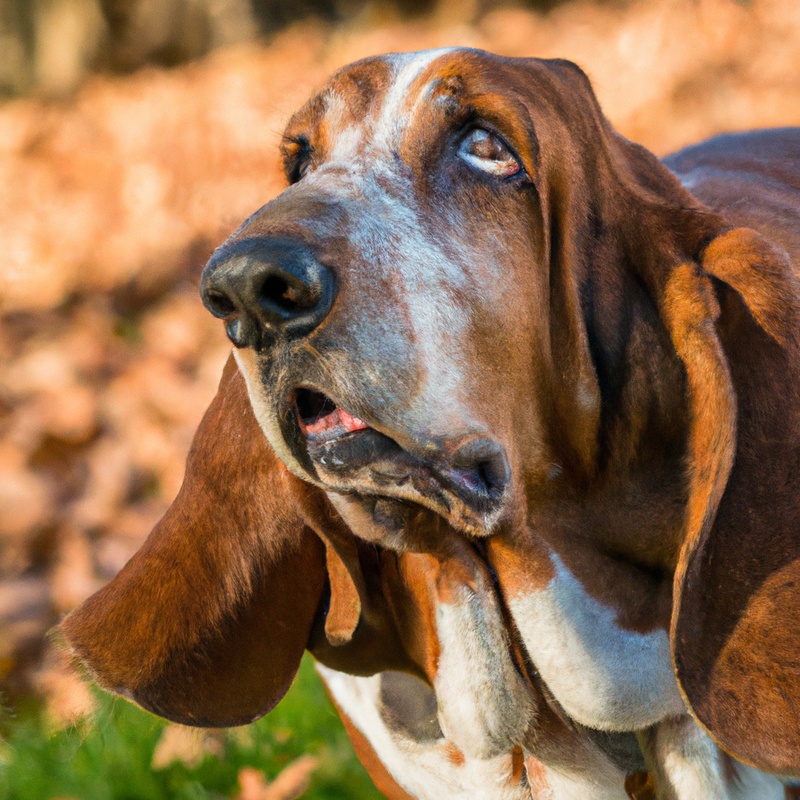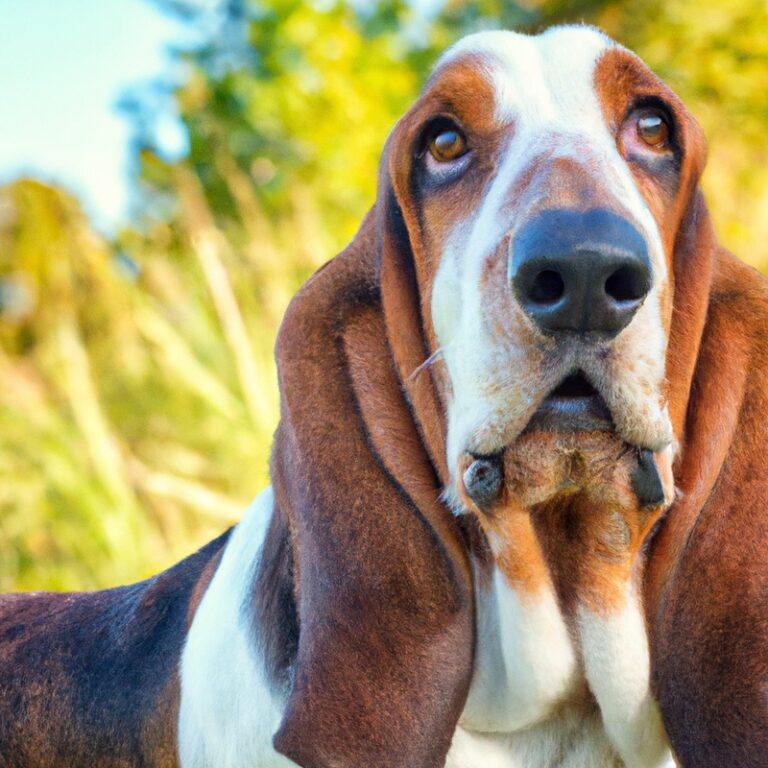How Do Basset Hounds React To Being Left Alone For Long Periods?
Key Takeaways:
- Basset Hounds may experience separation anxiety when left alone for long periods.
- They are prone to excessive barking, destructive behavior, and house soiling when left alone for extended periods.
- Proper training and providing mental stimulation can help alleviate anxiety and prevent negative behaviors.
- Basset Hounds should not be left alone for more than 4-6 hours on a regular basis.
Have you ever wondered how Basset Hounds cope when left alone for extended periods? As a dog lover and experienced Basset Hound owner, I understand the importance of ensuring our furry friends are happy and content even when we’re not around.
In this article, we will delve into the natural instincts and temperament of Basset Hounds that influence their reactions to being alone.
We will also explore the impact of prolonged solitude on their mental well-being, the signs of distress to look out for, and potential consequences. But don’t fret! I’ll also share practical tips and strategies to manage and prevent any issues, as well as ways to seek support and build a strong network of fellow Basset Hound owners.
So whether you’re a seasoned Basset Hound owner or considering adding one to your family, stay tuned for valuable insights into keeping your Basset Hound happy and content even during those long hours apart!
| Behavior | Response |
|---|---|
| Barking | May bark excessively or howl when left alone. |
| Destructiveness | May chew on furniture or other items when bored or anxious. |
| Anxiety | Can experience separation anxiety and become stressed or depressed. |
| Accidents | May have accidents indoors due to anxiety or inability to hold their bladder. |
| Loneliness | Can become lonely and may develop negative behaviors as a result. |
| Depression | May exhibit signs of depression, such as decreased appetite or lethargy. |
Understanding Basset Hound Behavior
Natural Instincts and Temperament of Basset Hounds
Basset Hounds have a laid-back and easygoing temperament.
They are friendly, gentle, and sociable dogs.
These hounds have a strong sense of smell, which is why they were originally bred for tracking scents.
They also have a natural instinct to follow their nose, which means they can wander off if not kept on a leash or in a secure area.
Bassets are known for their loyalty to their families and can exhibit mild stubbornness at times.
It’s important to provide them with mental and physical stimulation to prevent boredom.

The Impact of Being Left Alone on Basset Hounds
Separation Anxiety in Basset Hounds
Separation Anxiety is a common issue among Basset Hounds, causing distress when they are left alone.
It’s important to understand that Basset Hounds are pack animals and thrive on companionship.
Being left alone for long periods can trigger anxiety, leading to destructive behaviors like excessive barking, chewing, or even soiling in the house.
These behaviors are their way of expressing distress and seeking attention.
It’s crucial to address separation anxiety by providing comfort, mental stimulation, and gradually increasing alone time to help your Basset Hound feel more secure.
Seeking professional help can also be beneficial in managing this issue.

Signs of Distress and Stress in Basset Hounds
Basset Hounds can show signs of distress and stress when left alone for long periods.
Some common signs include excessive barking, howling, or whining, destructive behaviors like chewing furniture or digging, and bathroom accidents in the house.
They may also display physical symptoms such as excessive drooling, panting, or pacing.
If you notice these signs in your Basset Hound, it’s important to address their anxiety and provide them with the necessary support and comfort.
Seeking professional help or engaging in positive reinforcement training can be beneficial for managing their stress.

Potential Consequences of Long Periods of Alone Time
Being left alone for long periods of time can have several potential consequences for Basset Hounds.
They are social dogs and thrive on human companionship, so extended periods of solitude can lead to feelings of loneliness and anxiety.
These feelings can manifest in behaviors such as excessive barking, destructiveness, and even aggression.
Additionally, Basset Hounds may develop separation anxiety, which can further exacerbate their distress when left alone.
Regular and prolonged isolation can negatively impact their overall well-being and quality of life.
Managing and Preventing Issues
Creating a Safe and Comfortable Environment
Creating a safe and comfortable environment for your Basset Hound is essential. Here are some tips to consider:
- Provide a designated safe space for your Basset Hound, such as a crate or a cozy corner with their bed.
- Keep the environment free from hazards and remove any toxic plants, chemicals, or small objects that your dog could ingest.
- Ensure that your Basset Hound has access to fresh water, food, and appropriate toys for mental stimulation.
- Set up a comfortable temperature and lighting in the area where your dog spends most of their time.
- Consider using calming aids like pheromone diffusers or music specifically designed to relax dogs.
By focusing on these aspects, you can create a safe and welcoming environment where your Basset Hound feels secure and content.
Effective Exercise and Mental Stimulation for Basset Hounds
Basset Hounds are active, intelligent dogs that require regular exercise and mental stimulation. To keep them happy and healthy, it’s important to provide them with activities that engage their minds and bodies.
Here are a few ways to effectively exercise and mentally stimulate your Basset Hound:
- Daily walks: Basset Hounds have a strong sense of smell, so taking them on regular walks allows them to explore different scents and environments. Aim for at least one walk a day to provide them with much-needed physical exercise.
- Puzzle toys: Basset Hounds enjoy problem-solving, and puzzle toys can keep them entertained for hours. These toys usually involve hiding treats or kibble inside, requiring the dog to figure out how to extract them.
- Nose work: Basset Hounds have a keen sense of smell, and engaging their noses in activities can be mentally stimulating. You can hide treats around the house or play scent-based games to keep them engaged.
- Obedience training: Training sessions not only improve your Basset Hound’s behavior but also provide mental stimulation. Teach them new commands and tricks to challenge their minds and keep them focused.
Remember, each Basset Hound is unique, so it’s essential to find activities that align with their interests and abilities. Regular exercise and mental stimulation will contribute to a happy and well-balanced Basset Hound.
Establishing a Routine and Structure
Establishing a routine and structure is essential for basset hounds when it comes to managing their alone time. Here are some tips:
- Set a regular schedule for feeding, walks, and playtime. Consistency helps basset hounds feel secure and know what to expect.
- Create a designated space for your basset hound with their bed, toys, and water. This helps them feel safe and gives them a sense of ownership.
- Provide mental stimulation through puzzle toys or treat-dispensing toys. This can keep them occupied and prevent boredom.
- Gradually increase alone time to help your basset hound adjust. Start with short periods and gradually build up to longer durations.
Remember, each basset hound is unique, so be patient and observe their behavior to tailor the routine that works best for them.
Gradual Alone Time Training for Basset Hounds
To help your Basset Hound feel comfortable being alone, gradual alone time training is key.
Start by leaving your hound alone for short periods, gradually increasing the time as they become more at ease.
Leave them with something to keep them occupied, like puzzle toys or treat-dispensing toys.
Create a cozy space for them with their bed or blanket and provide a comforting item, like a shirt with your scent.
Stay consistent and patient throughout the process, and remember to reward good behavior.
Seeking Support for Your Basset Hound
Professional Trainers and Behaviorists
Professional trainers and behaviorists are valuable resources for helping you address any behavioral issues or concerns with your Basset Hound.
They have the knowledge and expertise to assess your dog’s behavior, identify any underlying issues, and develop a customized training plan.
With their guidance, you can learn effective techniques to manage separation anxiety, prevent destructive behaviors, and promote positive interactions.
Working with a professional can provide you with the support and guidance you need to ensure a happy and well-adjusted Basset Hound.
Canine Enrichment and Daycare Services
Canine enrichment and daycare services can greatly benefit your Basset Hound.
These services provide mental stimulation, socialization, and physical exercise for your furry friend.
Enrichment activities such as puzzle toys, interactive games, and scent work can help keep your Basset Hound entertained and intellectually engaged.
Daycare services also offer a safe and supervised environment where your Basset Hound can interact with other dogs, improving their social skills.
With these services, you can ensure that your Basset Hound receives the mental and physical stimulation they need to thrive.
Engaging with Other Basset Hound Owners and Communities
Engaging with other Basset Hound owners and communities can be a great way to find support, advice, and friendship.
There are various online forums and social media groups dedicated to Basset Hounds where you can connect with fellow owners.
You can share experiences, ask questions, and learn from each other’s knowledge.
Additionally, joining local Basset Hound clubs or attending meet-ups can provide opportunities for in-person interaction and networking.
Being part of a community of Basset Hound lovers can enhance your understanding of the breed and make your journey as a dog owner more enjoyable.
Final Verdict
Basset Hounds, like any other dogs, may experience distress and anxiety when left alone for extended periods.
Their innate pack mentality and need for companionship make them particularly prone to separation anxiety.
Recognizing the signs of distress and taking proactive steps to manage their alone time is crucial for their well-being.
Establishing a safe and comfortable environment, providing mental stimulation, and seeking professional support if needed can greatly alleviate these behavioral issues.
By understanding and addressing their unique needs, we can ensure that our Basset Hounds lead happy and fulfilling lives, even when left alone.







